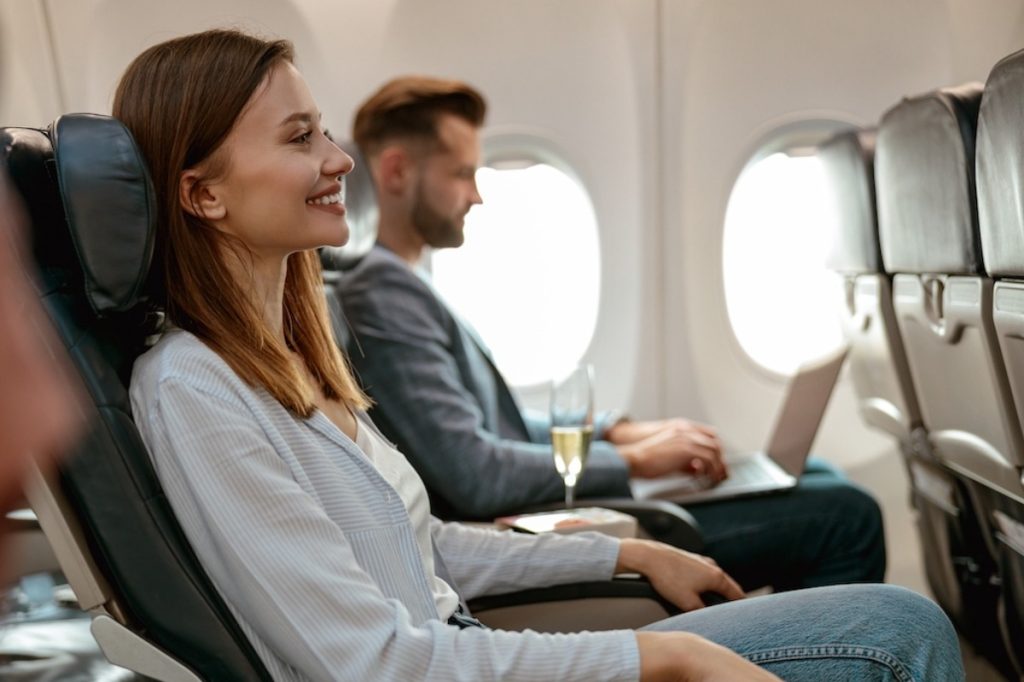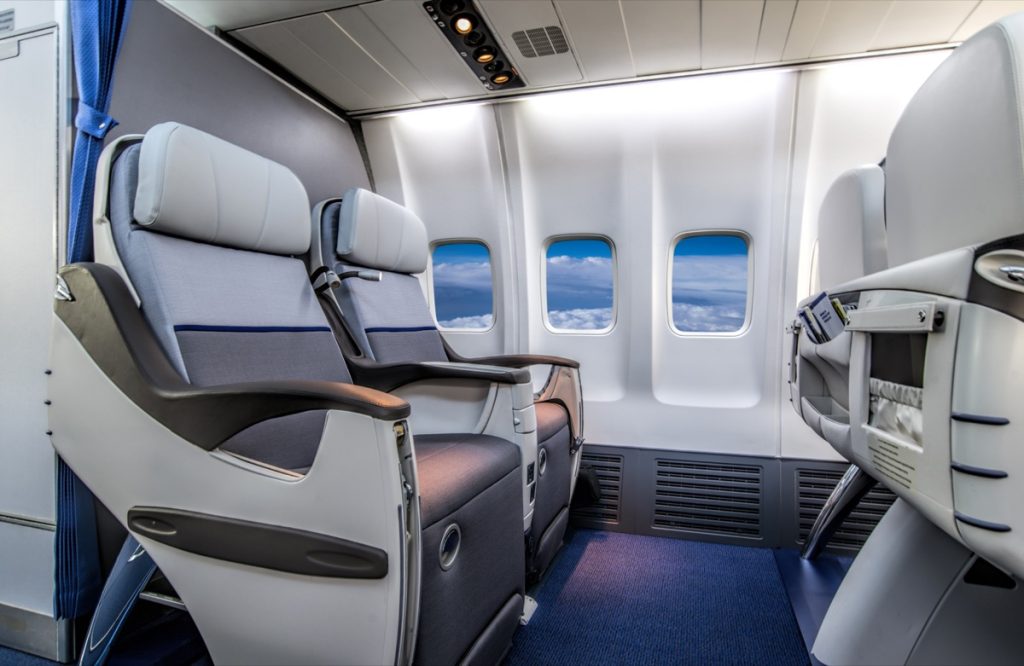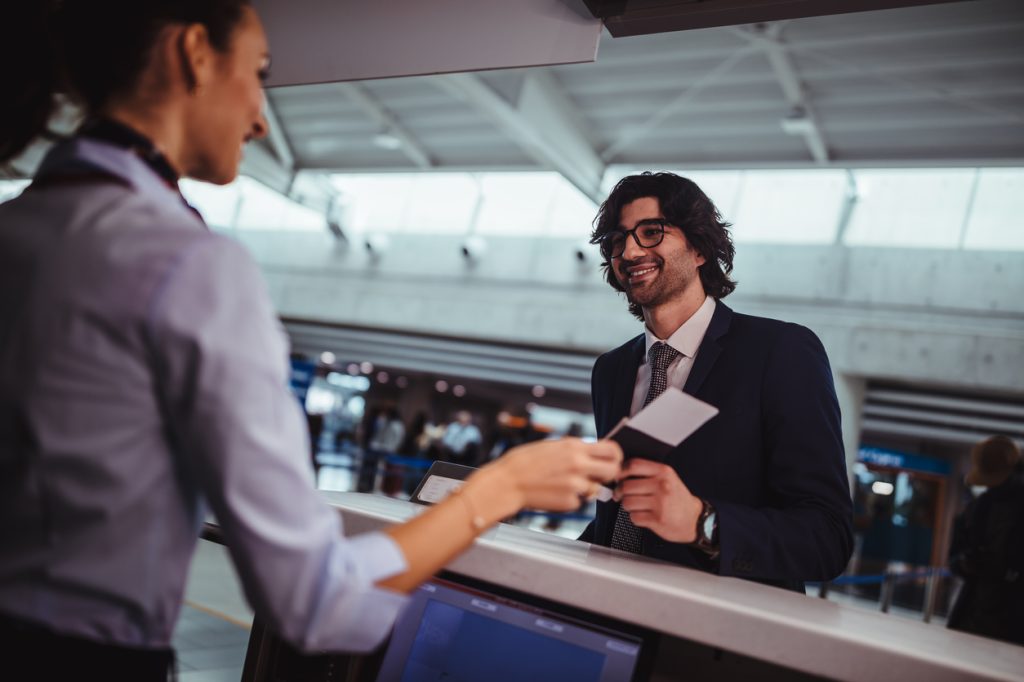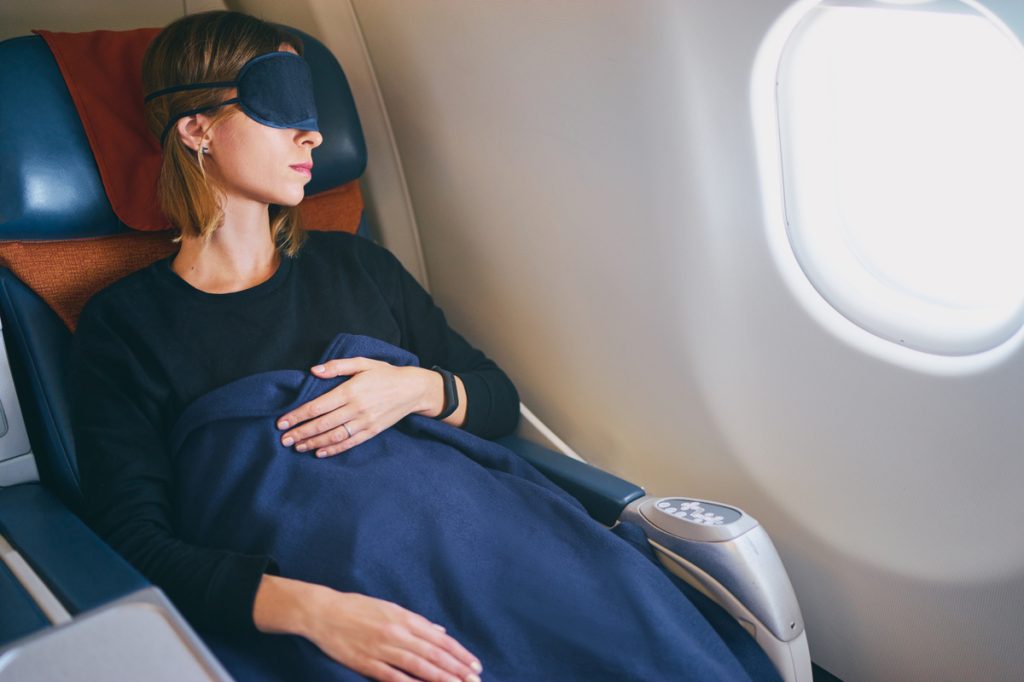Delta and American Are Finally Upgrading Their Seats—But It’ll Cost You

Boarding a flight can put some of the most beautiful and exciting destinations within our reach. Unfortunately, the process of actually getting there can be anything but glamorous. Whether you’re locked in a battle for the armrest with your neighbor, desperate for a little more legroom to stretch out, or once again let down by getting stuck with a dreaded middle seat, gripes about how uncomfortable air travel can be are as common as carrier scheduling issues. But now, major airlines like Delta and American are finally upgrading seats on planes in their fleet. Read on to see what changes are coming—and why it might cost you extra to see the benefits.
RELATED: Travelers Are Boycotting Southwest Over Boarding Change That Starts Today.
Major airlines are upgrading their seats by adding more premium options.

For years, getting a more spacious seat on a plane has required being on an undersold flight or getting bumped into the exit row. But now, major airlines like Delta, American, United, and JetBlue are finally upgrading their cabins by adding more premium and first-class seats for passengers to purchase, CNBC reports.
Travelers on longer-haul flights may soon notice the changes. American recently announced it planned to upgrade its more traditional Flagship First Class seats on certain widebody aircraft with a larger business class cabin made up of 70 seats—each outfitted with its own sliding door for privacy—by next year. Overall, the carrier said it will increase premium seats on its larger aircraft by 45 percent within the next three years, CNBC reports.
Earlier this year, United said it had increased its domestic premium seat availability by 25 percent since 2019, The New York Times reports. This number will increase to 75 percent by 2026, with an additional 53 premium seats per flight, which will most likely be visible on coast-to-coast trips or routes servicing Hawaii.
Delta is also making significant cabin changes, increasing the number of premium economy or business class seats by 15,000 above pre-2020 availability, The Times reports. The airline recently refurbished cabins on some of its Boeing 767-400 aircraft by taking out six business class seats and 20 economy seats to make room for 20 premium economy seats. It also pulled up premium economy seats to add 21 business class seats on some Airbus models.
RELATED: TSA Announces It Will Flag Certain Passengers for Extra Screening.
Data shows passengers have become more willing to pay for the cushier experience.

While airlines have long pushed to fill economy seats with travelers looking for the best deal on airfare, carriers are now noticing a distinct change in passenger behavior since the COVID-19 pandemic as they shell out cash for bigger seats and more space—especially for international travel.
Airline data shows that economy seats on Europe-bound flights from the U.S. are down from 81.9 percent in 2018 to 79.3 percent this year. Meanwhile, business-class seats saw an increase from 12.9 percent to 13.5 percent, while premium economy saw an even greater jump from 4.2 percent to 6.4 percent, CNBC reports.
Passengers may also have initially been enticed by lower-than-usual prices brought on by a decrease in business demand, David Slotnick, an aviation expert with travel news website The Points Guy, told The Times. But even as airfare has recovered and even surpassed pre-pandemic levels, many are finding it harder to give up the perks.
“Getting from A to B isn’t necessarily what they’re selling anymore. Anyone can do that,” Edward Dryden, president of the interiors unit of Collins Aerospace, a top manufacturer of airline seats, told CNBC. “It’s that experience within the cabin.”
RELATED: American Is Cutting Flights to 5 Major Cities, Starting Oct. 29.
Travelers will have to be willing to pay up if they want to improve their experience.

Of course, the latest cabin upgrades aren’t the kind of changes that all travelers can enjoy. A major part of the reasoning for airlines to update their seating is rooted in the revenue they can generate by charging much more than the base economy fares.
According to The Times, a flight from New York to Los Angeles in early May of this year from American, Delta, and United could be found for about $300, while premium economy and business class seats went for $900 and $1,200, respectively.
International flights saw even greater jumps in pricing. Premium economy seats on roundtrip Delta flights to Paris from New York City on Sept. 22 were priced at $3,015, compared to $980 for economy seats. Meanwhile, United Airlines is charging $1,850 for premium economy and more than $5,000 for business class for the same trip, compared to $912 for economy, CNBC reports.
RELATED: For more up-to-date information, sign up for our daily newsletter.
Many customers still seem willing to pay for the upgraded experience, while some airlines go all-in.

Even if data shows customers trending towards pricier seats, airlines are still bound by the realities of changing demand. But for now, many travelers appear to justify the extra cost.
“I’m not going to fly to Europe in 36B. 36B is a bra size, not an airline seat,” Natalie Rasmussen, an application scientist from California, told CNBC. She added that when offered the opportunity to upgrade her premium economy seat to business class on a recent flight for $500, “I clicked ‘yes’ so fast.”
Some airlines have even decided to go all-in on the idea of premium travel. Recently launched carrier La Compagnie offers nothing but business class seats on its flights, Insider reports. The company’s founder says the tactic allows them to charge a more reasonable rate due to its focus on the experience.